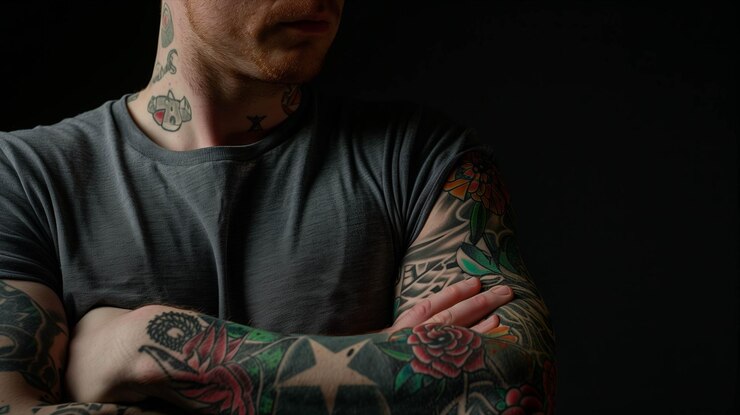Question
I am a revert to Islam, and I already have tattoos from before. I don’t have the money to remove them right now. Do my tattoos affect my wudu or salah?
Bottom Line
Tattoos may mark the skin, but they do not break wudu or salah.
Short Answer
No. Tattoos do not invalidate wudu or salah. Ablution is broken only by specific actions mentioned in the Qur’an and Sunnah, such as natural discharges, sleep, or touching private parts. Tattoo ink sits beneath the skin, so water still reaches the skin in wudu.
Key Points
- Wudu nullifiers are clearly defined; tattoos are not one of them.
- Tattoo ink is under the skin, not on top of it, so it does not block water.
- Wudu and ghusl remain valid even with tattoos.
- A revert with tattoos does not need to remove them for prayers to be valid.
Detailed Answer
Wudu is a ritual purification required before salah. The nullifiers of wudu are explicitly defined in Qur’an and Sunnah: urination, defecation, passing wind, deep sleep, or direct touching of private parts. Tattoos do not fall into these categories.
How tattoos are done: Modern tattoos are created by injecting ink with a needle into the dermis layer of skin. Since the ink is beneath the surface, it does not block water during wudu or ghusl.
Islamic ruling:
The Prophet ﷺ said:
“Allah has cursed those who do tattoos and those who get them done.” Sahih al-Bukhari 5937
This curse applies to the act of tattooing, not to whether wudu or salah is valid afterward. For reverts, past sins, including tattoos, are forgiven by Allah when they embrace Islam, Qur’an 25:70
Health issues: Medical studies link tattoos with skin infections, allergic reactions, and higher risks of bloodborne diseases if the equipment is unsterile.
Costs of removal: Tattoo removal is possible through laser treatment, but it is costly, ranging from $200 to $500 per session, with multiple sessions required.d For many, it is not financially feasible.
Historical reasons for tattoos: In pre-Islamic Arabia and other cultures, tattoos were used for tribal identity, superstition, or beauty. Islam prohibited them from preserving natural creation, avoiding harm, and distancing Muslims from practices of jahiliyyah.
What This Means for You
As a revert with tattoos, your wudu and salah are valid. You do not need to remove your tattoos to worship Allah. If they were done before Islam, they are forgiven. If done after, sincere repentance is sufficient. What matters is your heart turning to Allah in obedience.
And Allah knows best
References
Primary Sources:
- Qur’an 5:6: Verse prescribing wudu obligations.
- Sahih al-Bukhari 5937: Curse upon those who tattoo or are tattooed.
Secondary Sources:
- Al-Nawawi, Sharh Sahih Muslim: Commentary on tattooing in Kitab al-Libas.
- Ibn Qudamah, al-Mughni: Hanbali discussion on Taharah.
- Al-Kasani, Bada’i al-Sana’i: Hanafi rulings on purification.
Modern Research & Reports:
- Mayo Clinic (2023): Risks of tattoos include infections, allergic reactions, and scarring.
- American Society of Plastic Surgeons: Tattoo removal is expensive and requires multiple sessions.
- JAMA Dermatology (2018): Reports long-term risks of tattoo inks, including heavy metal exposure.
Was this helpful?
Leave Your Comments
© Copyright 2025, All Rights Reserved

